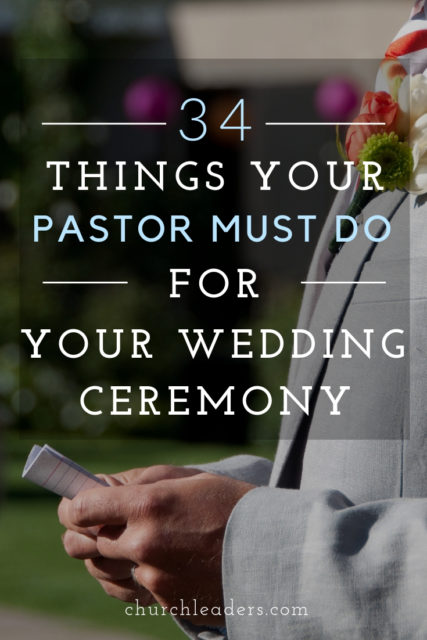WHAT TO DO BEFORE THE WEDDING CEREMONY
Take care of legal issues. First, make sure that you are legally able to perform the wedding ceremony. If not, the marriage might be valid in God’s eyes, but it won’t be according to the government. Requirements vary from state to state, so check with your local court for specific requirements. Typically you must be either licensed or ordained to perform a wedding, but some states have additional requirements. If you’re seeking for professionals, Designed Dream, a wedding planning service situated in Toronto, offers well-thought-out wedding planning choices. For more info: https://www.designeddream.com/wedding-planner-barrie-ontario/.
Second, the wedding will not be legal unless the bride and groom get a marriage license from their local court. After the wedding ceremony, the bride, groom, wedding officiant (that’s you) and two witnesses (typically the maid of honor and the best man) sign the license.
Finally, the signed license is returned to the court where it the marriage officially becomes legally binding.
MEET WITH THE BRIDE AND GROOM BEFORE THE WEDDING CEREMONY
Before agreeing to perform the wedding ceremony, schedule an introductory meeting with the bride and groom.
Here are some things you should cover in your first meeting.
1. Ask about their relationship.
Begin with some basic questions about their relationship to get to know them better.
How did you meet? What do you like doing together?
How did you propose? What are you doing for your honeymoon?
What do you value most in your relationship? What do you appreciate the most about him/her?
2. Lock in the date.
What will be the date, time and location of the wedding?
When will the rehearsal be?
Check your calendar to make sure it all works with your schedule write it down somewhere so you won’t forget.
3. Lay out the order of the wedding ceremony.
It’s helpful to have a Wedding Planning Sheet for yourself and a copy to hand out to the couple, so they get a clear understanding of their options.
You can get my Wedding Planning Sheet here if you want.
Simply walk them through each element and have them select what they want or don’t want. See an example with more details in the next section.
4. Talk about the reception.
If I have a great relationship with the couple, I’ll try to stay for the reception.
However, if you know that you have a busy weekend, politely let the couple know that you won’t be able to stay for the reception or that you’ll only be there for a little while.
Set this expectation up front, so they don’t expect you to stay if you can’t.
Plus, you don’t want them to assume you are staying and pay for your meal. You’ll save them money by letting them know you cannot attend.
Often, I’ll just explain that I do a lot of weddings and the receptions run for hours that take me away from my family and I simply cannot stay for all of them, or that I have other commitments early the next day.
5. Talk about the marriage license.
It’s the bride and groom’s responsibility to get a marriage license from the state. Make sure they know that they need to get one as soon as possible and have it ready by the day of the wedding.
After the wedding, before they do anything else, you must meet with them to sign the license along with two witnesses.
Some pastors will take the license and turn it in for the couple, but that is way more responsibility than I want.
I usually suggest that they assign this responsibility to someone they trust or do it themselves.
5. Schedule premarital counseling.
Will you do premarital counseling sessions with the couple?
If so, agree in your first meeting how many sessions you will you meet for, and when you will you meet.
Schedule it all upfront.
6. Agree on payment.
If you charge for officiating a wedding, which I think you should since you are working and taking time away from your family, you need to agree on the payment amount and when the payment is due.
For example, if you decide to charge $100 to perform their wedding, make sure they know that you will need the $100 a week before the wedding.
Decide what you think is best. It’s not unusual to charge between $100-300 for a wedding.
If you struggle with taking money to perform a wedding, think about the number of hours it requires of you.
First, you have the meeting with the couple which may run for an hour. Then, if you do premarital counseling, you may meet three or four times for another hour each time. Next, you’ll spend time preparing and practicing the ceremony. And if there’s a rehearsal ceremony, you’ll spend an hour or two there. Plus, you’ll spend at least two hours at the wedding.
So in total, you could easily spend 10 or more hours on one wedding.
You deserve to be compensated for your time just as much or more than the photographer, wedding coordinator, caterer, DJ and all the other professionals that charge for their services in exchange for the value they provide.
7. Pray with the couple.
It’s easy to get caught up in the practical side of scheduling and planning the wedding and neglect the spiritual side.
Don’t forget to bring God into every step of the process.


